Since the last presidential election, I’ve witnessed a near constant stream of ridicule against Appalachian people who voted for Trump, “They are getting what they deserve,” “They had a choice and they chose a lying bigot,” “They screwed us all.” I have even been told “We don’t have time to deal with them (Trump voters). We have bigger problems to fix.” All of these statements are dismissive of Appalachian people and stereotype us as being ignorant, egotistical, and even racist. It is not surprising that these comments have come from people who did not grow up in the mountains, who have not had to face the same limited choices we’ve had to face, let alone work a single shift in a non-union mine to achieve at least some form of stability for their family.
Earlier this week I wrote an article for the Huffington Post titled “Don’t Tell Coal Country, ‘That’s What You Get for Voting for Trump!’” My intent was to help people understand how their attitude toward Appalachians reinforces notions of liberal/progressive elitism—something we have long suffered from since the earliest stereotyping of our region and the indignity of the “War on Poverty.”
You can imagine then, how disheartened I was to see that my Huff Post article garnered the same derisive comments as the election. What’s more, many of the statements came from people who I thought were educated critical thinkers and social justice advocates that held themselves to a higher moral standard. Sometimes it’s easy to confuse a working for a good cause with actual humility.
If I were to let the dejection of my post fester itself into defiance, I myself would put a Trump sign in my own front yard and scream at the top of my lungs, “F**k all y’all.”
This is exactly the point I’ve been trying to make for the past five years.
Let’s look at a few election maps. Note the switch from blue to red in the central Appalachian coalfields of eastern Kentucky, southern West Virginia, and southwestern Virginia.
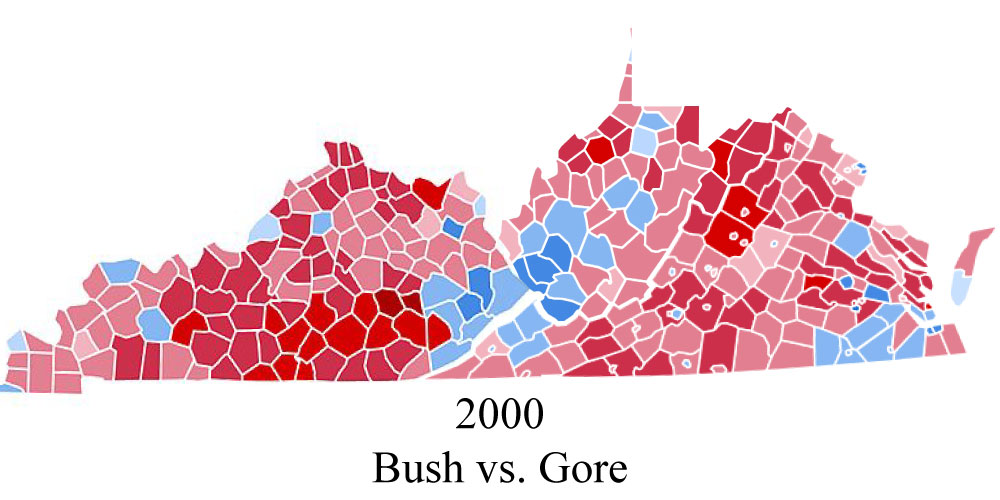
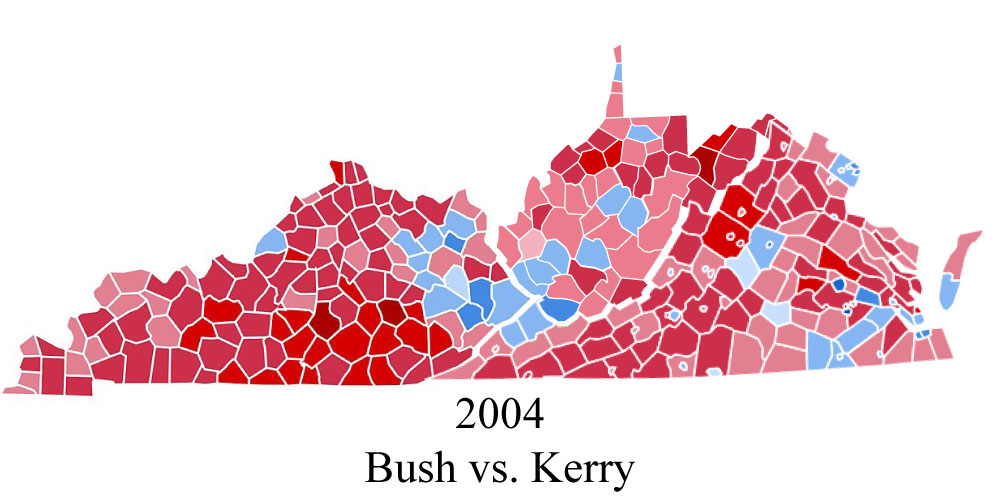
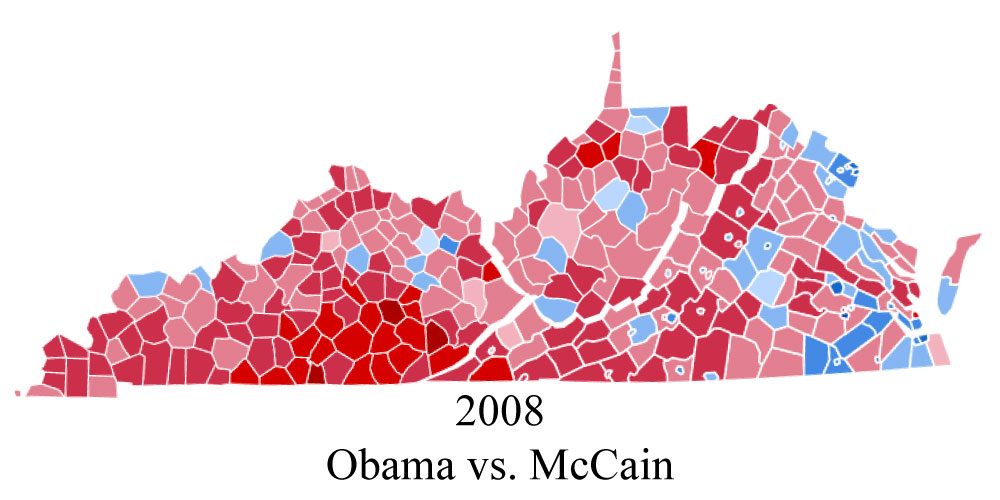
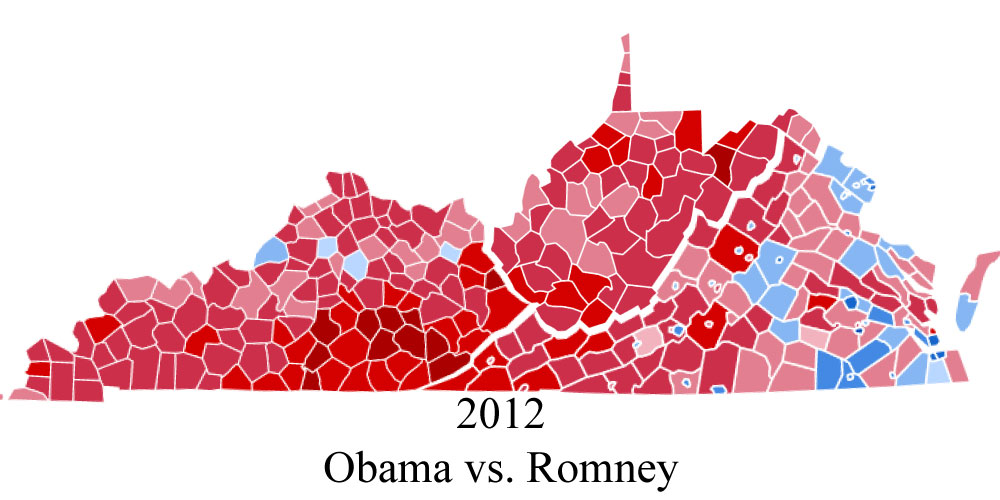
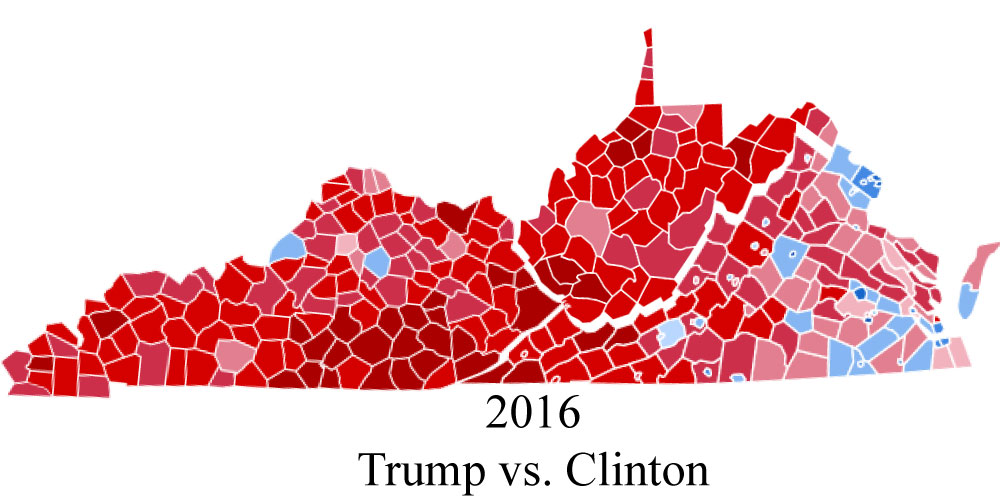
How did a coal-based region go from voting for Al Gore—a man who openly advised about the issues of human-caused global warming—to voting for his polar opposite?
It is important to point out that a lot of the political change coincided with the increase in national attention surrounding mountain top removal coal mining and the influx of environmental activists to fight it.
The increasing attention on the issues of MTR gave rise to the coal industry’s investment in public relations campaigns to defend themselves and establish a positive cultural image within the region. Under normal circumstances, no one back home would have believed the coal industry rhetoric. Everyone still held a deep distrust of the industry given their history of exploitation. But between the failure of the United Mine Workers to re-organize and provide a counterpoint to the industry’s rhetoric, and the indifference shown by environmental organizations towards coal mining families, (many of whom became influenced by outside activists and academics from backgrounds of privilege and were represented by young student activists engaging in public protests and civil disobedience), the industry’s efforts to gain the support of mining communities was overwhelmingly successful.
By the time the coal markets failed due to the increase in natural gas production, the stage had been set to cement Appalachia’s new political and economic identities in defence against all the outside “tree huggers”.
Do we blame the coal industry and conservative politicians for doing what they have always done? Do we blame the UMWA and the democratic party who stopped upholding the rights of the workers? Or, do we blame the environmental organizations who obstinately conflicted with local culture while attempting to dictate policy without first consulting Appalachian communities?
Nah. Let’s just blame all the coal mining families for voting for a man they hoped would upset the political establishment, who represented an opposition to all of the liberal elitism and stereotyping they’d suffered, , and who could possibly give them some economic relief, even if he was from New York, even if he was a billionaire, even if his promises were probably bullshit.
Over the years, I have come to realize that many so-called “environmental justice organizations” avoid the hard task of doing actual grassroots organizing, i.e. going into communities, talking to people, listening and accepting people for who they are, and providing the knowledge and resources they need to build their own, local, broad based movements for progressive change. The end result should be organizations composed predominantly of local, native-born people from the community that are well respected within the communities they work.
What happens is much different.
Instead, many activists, after having gone into areas and defied social and cultural norms with their activities, look for ways to fund their lifestyles by engaging in activism and social media campaigns that attract donations from people who live outside the areas—people of the same privileged demographic makeup who believe that their methods of activism are effective. When it becomes overwhelmingly apparent that those methods are grossly ineffective, the activists cling to minor successes, claim victory using industry shutdowns that are more market driven than being related to their efforts, and absolve themselves of any social wrongdoing by using anyone’s hatred and vitriol towards them as a means to accuse entire communities of being willfully ignorant, servile, bigots.
Perhaps this is why J.D. Vance’s Hillbilly Elegy has become so popular among both conservatives and liberals. Liberals now have reason to join conservatives in the belief that people should just pick themselves up by their own bootstraps.
Trump’s election should have been a wake-up call, prompting the left to question their organization’s structure and shortcomings as effective advocates for justice. It has instead become a scapegoat for their failure—most often at the expense of Appalachian coal mining families.
